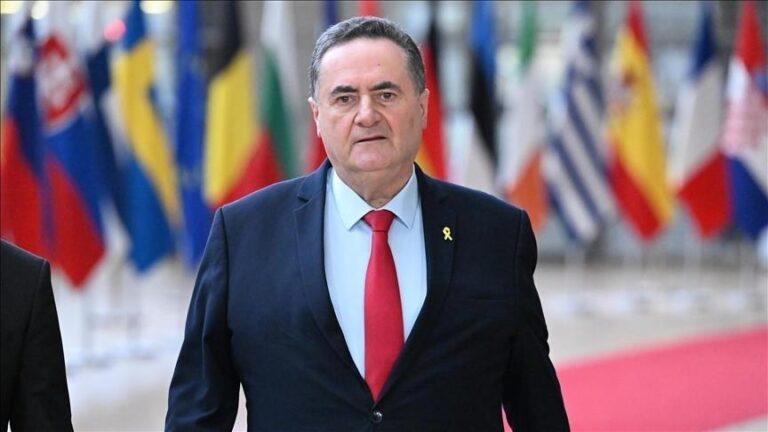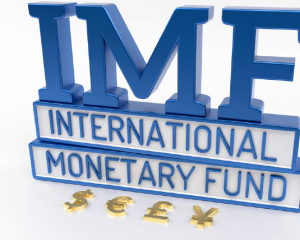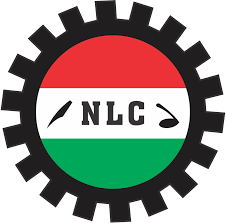Foreign News
Egypt’s Pound slides as IMF Deal triggers New exchange Rate Regime

Egypt’s pound slid about 14.5 per cent to a record low against the dollar on Thursday as authorities announced a three billion dollars International Monetary Fund (IMF) deal with a commitment to a “durably flexible exchange rate regime”.
The central bank also raised interest rates by 200 basis points in an out-of-cycle meeting, saying it aimed to anchor inflation expectations and contain demand-side pressures.
Egypt had been in talks with the IMF for a new loan since March after its economic woes deepened due to the war in Ukraine.
The fund has long been urging Egypt to allow greater exchange rate flexibility.
In a statement confirming a staff-level agreement on a three billion dollars, 46-month Extended Fund Facility, the IMF said a flexible exchange rate regime should be “a cornerstone policy for rebuilding and safeguarding Egypt’s external resilience over the long term”.
It said the deal was expected to catalyse a large, multi-year financing package, including about five billion dollars in the fiscal year ending June 2023, reflecting “broad international and regional support for Egypt”.
Egypt’s central bank said it was intent on intensifying economic reforms and had “moved to a durably flexible exchange rate regime, leaving the forces of supply and demand to determine the value of the EGP against other foreign currencies”.
The pound weakened rapidly to around 23 to the dollar from 19.67, data from Refinitiv showed.
That was similar to the parallel market rate and indicated a currency float, Naeem Brokerage said in a note.
The bank had already allowed the pound to depreciate by 14 per cent against the dollar in March, and the currency had been slipping gradually since May.
Former central bank governor Tarek Amer, under whom the pound had long been held steady, was abruptly replaced in August.
Non-deliverable futures, which FX traders use to bet on moves in the currency over various timeframes, pointed to the pound falling to around 24 per dollar over the next three months and 26 per dollar over the next year.
Egypt’s international government bonds also gave back the gains they had made earlier in the day, which had lifted the price of most of them by more than two cents on the dollar.
The war in Ukraine pushed up Egypt’s bills for wheat and oil while dealing a blow to tourism from two of its largest markets, Ukraine and Russia, a key source of hard currency.
In its statement on Thursday, the central bank said the conflict had “dire economic ramifications” and consequently led Egypt to experience large capital outflows.
Annual headline inflation accelerated to 15 per cent in September, its highest in almost four years, according to official data. Price rises, which come after years of austerity reforms under a 2016 IMF deal, have hurt many of Egypt’s 104 million population.
On Wednesday, the government raised the public sector minimum wage by 11 per cent to 3,000 Egyptian pounds, extended a freeze on residential electricity prices by six months to June 2023, and also extended food subsidy card benefits.
The central bank said it would continue to announce inflation targets “along the predetermined disinflation path that began in 2017”. The bank’s existing target is 5 per cent to 9 per cent.
The 200-bps raise in rates brings the overnight lending rate to 14.25 per cent and the overnight deposit rate to 13.25 per cent.
The size of the IMF deal appeared in line with the lower end of expectations, said Emre Akcakmak, a Dubai-based senior consultant at East Capital.
“What’s more important to note is that the central bank seems to be more decisive in its fight against rising inflation and in moving closer to a flexible exchange rate system,” he said.
The central bank also said that it would gradually phase out by December a rule that mandated the use of letters of credit for import finance.
The rule, an effort to preserve scarce dollars, had caused a major slowdown in imports of everything from consumer goods to industrial components and left some basic commodities stuck at ports.
In order to deepen the foreign exchange market and enhance its liquidity, the central bank said it would work towards building the foundations for a derivatives market. (NAN)
Foreign News
U.S. Imposes Sanctions on Iranian Money Laundering Network

The U.S. Treasury Department has announced sanctions against more than 30 individuals and companies accused of helping Iran evade sanctions and launder billions from oil and petrochemical sales to fund its nuclear and missile programmes.The sanctioned network operated as a system of “shadow banking” involving front companies in places like Hong Kong and the United Arab Emirates, the department said in a statement.
The goal, it said, was to bypass existing sanctions, obscure the origin of oil proceeds, and funnel money into military-linked projects. The new sanctions freeze any U.S.-based assets of the targeted entities and bar U.S. citizens from doing business with them.The measures also complicate the ability of those sanctioned to operate internationally, especially in transactions involving U.S. dollars.Washington and Tehran are engaged in negotiations over the future of Iran’s nuclear programme.U.S. President Donald Trump has repeatedly said he “aims to prevent Iran from developing nuclear weapons”.Tehran insists its nuclear activities are purely for civilian purposes.Trump has warned that military action remains on the table if diplomacy fails. (dpa/NAN)Foreign News
Trump Bans Citizens of 12 Countries from Entering U.S.

U.S. President Donald Trump has signed a proclamation on Wednesday evening banning citizens of 12 countries from entering the United States.The countries affected are Afghanistan, Myanmar, Chad, Congo, Equatorial Guinea, Eritrea, Haiti, Iran, Libya, Somalia, Sudan and Yemen.
Nationals from these countries will be “fully” restricted from entering the U. S., according to the proclamation. Similarly, the entry of nationals of Burundi, Cuba, Laos, Sierra Leone, Togo, Turkmenistan and Venezuela will be partially restricted.The proclamation is effective on June 9, 2025 at 12:01 am EDT (5:01am Nigerian time).Trump said the move was needed to protect the U.S. against “foreign terrorists” and other security threats.“We will not allow people to enter our country who wish to do us harm,” Trump said in a video posted on X.The U.S. President said the list could be revised and new countries could be added.He said the countries subject to the most severe restrictions were determined to harbour a “large-scale presence of terrorists”.He alleged others failed to cooperate on visa security and had an inability to verify travellers’ identities, inadequate record-keeping of criminal histories and high rates of visa overstays in the U.S..“We cannot have open migration from any country where we cannot safely and reliably vet and screen those who seek to enter the United States,” Trump said.Trump’s directive is part of an immigration crackdown that he launched at the start of his second term, pledging to restrict people from the Gaza Strip, Libya, Somalia, Syria, Yemen and “anywhere else that threatens our security”.Trump issued an executive order on January 20 requiring intensified security vetting of any foreigners seeking admission to the U.S. to detect national security threats.That order directed several cabinet members to submit a list of countries from which travel should be partly or fully suspended because their “vetting and screening information is so deficient.”During his first term in office, Trump had announced a ban on travellers from seven countries, a policy that generated so much controversies before it was upheld by the Supreme Court in 2018.However, former President Joe Biden, who succeeded Trump, repealed the ban in 2021, calling it “a stain on our national conscience.” (NAN)Foreign News
Israel Vows to Build Jewish Settlements, Rejects Macron’s Call for Palestinian State

“Do not threaten Israel with sanctions” as it will continue to build a “Jewish state” on the ground,” Israeli Defense Minister, Israel Katz, warned on Friday.He also rebuffed a call by French President Emmanuel Macron for establishing a Palestinian State.In open defiance of international law, Katz claimed that world powers may recognize a Palestinian state “on paper.
”Katz made the remarks during a visit to Sa-Nur, an illegal outpost in the northern West Bank that the Tel Aviv government recently decided to officially designate as a settlement for illegal Israeli settlers. In a direct message, Defense Minister Israel Katz targets French President Macron and European allies.He also dismissed the potential international consequences.He said: “They will recognise a Palestinian state on paper, while we will build the Jewish Israeli state on the ground.“Don’t threaten us with sanctions. You will not make us bow.“The State of Israel will not kneel before threats.”His comments came hours after President Macron stated that recognising the State of Palestine was a “moral duty”.Macron also reiterated that France may move toward official recognition during an upcoming international conference focused on the two-state solution.Earlier this week, Israeli newspaper Yedioth Ahronoth reported that the Israeli Security Cabinet had secretly approved the establishment of 22 new illegal settlements in the occupied West Bank.In response, the Israeli anti-settlement group Peace Now issued a statement Thursday, revealing that 12 of the newly approved settlements were previously unauthorised outposts and farming sites established in recent years.According to Peace Now, there are currently 156 illegal settlements and 224 outposts across the occupied West Bank, including East Jerusalem, with over 736,000 illegal Israeli settlers living on occupied Palestinian land.The international community, including the UN, considers the Israeli settlements illegal under international law.The UN has repeatedly warned that continued settlement expansion threatens the viability of a two-state solution, a framework seen as key to resolving the decades-long Palestinian-Israeli conflict.In July 2024, the International Court of Justice declared Israel’s decades-long occupation of Palestinian land illegal and demanded the evacuation of all existing settlements in the West Bank and East Jerusalem.(AA/NAN)

























